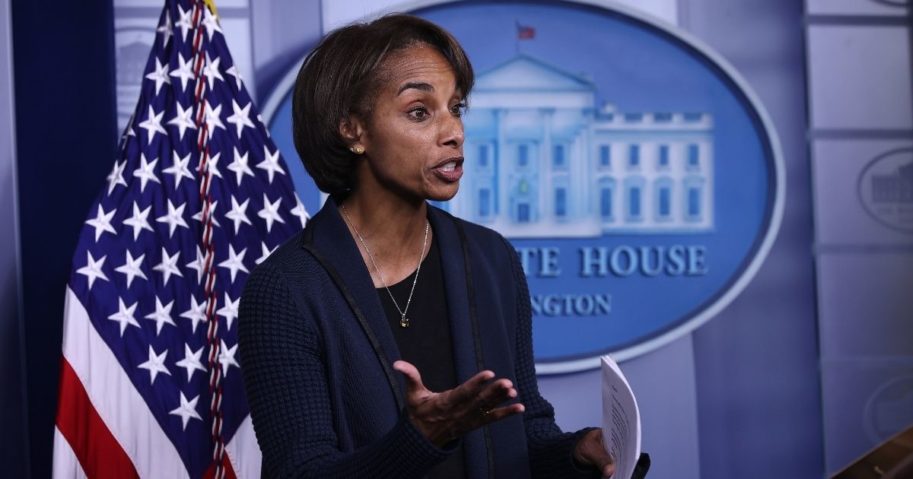The Biden administration affirmed its support for what’s known as a global minimum tax on Sunday as part of its push to make corporations shell out more in taxes.
Last month, Treasury Secretary Janet Yellen said it was time to end “a 30-year race to the bottom on corporate tax rates” and establish a global tax system so corporations could not find a tax haven anywhere in the world.
On Sunday, Council of Economic Advisers chair Cecilia Rouse extolled the virtues of the plan in the context of paying for President Joe Biden’s domestic spending.
“The idea is to make sure that corporations are paying their fair share, to button up some of the loopholes, which have meant more corporations were actually putting more money offshore – off of U.S. soil – and having a global minimum tax so that we’re working with the rest of our trading partners, so that we’re working with the rest of the world so that corporations are paying their fair share worldwide,” Rouse said during an interview on “Fox News Sunday.”
“President Biden is really saying, ‘Look, everybody should pay their fair share,’” she said, according to Fox News. “Yes, internationally we don’t want to be disadvantaged, so he’s also working with other countries so that we have a minimum tax internationally so there’s not a race to the bottom.”
Rouse said the Biden administration wants to reverse the trend of corporations growing richer.
“What we’ve seen over the past several decades is that the wealthiest Americans, the big corporations are getting wealthier, and they’re contributing less in terms of federal revenue,” Rouse said.
Yellen to push for global minimum tax rate on corporations https://t.co/5CkXfK1NGR #FoxBusiness The Big Problem with the Biden Spending spree is that almost all of it is non-essential and has nothing to do with helping Americans.
— v e (@MisterVR5) May 2, 2021
So what is a global minimum tax?
Bloomberg said the concept has “two basic notions: setting a minimum corporate tax rate across the world (think of this as making a bigger revenue pie), and rewriting the rules for allocating that revenue among countries (cutting the pie up differently).”
Bloomberg’s report also painted a scenario of how the concept could work.
“A company headquartered in Country A is reporting income in Country B, where the rate is 11%. With a global minimum rate of 15% in effect, Country A would ‘top up’ the tax and collect another 4% of the company’s profit from Country B — representing the difference between Country B’s rate and the global minimum rate. That undercuts any advantage of shifting to lower-tax places and pressures countries to conform to the global norm,” the report said.
The concept has support from Europe.
“We hope that the announcements of Secretary Yellen regarding the U.S. position, withdrawing the safe harbor regime proposal and calling for a minimum corporate taxation, will spur a new momentum toward agreement on a consensus-based global solution this summer,” European Commission spokesman Dan Ferrie said last month, according to Fox News.
#BREAKING Germany, France back 21% global minimum corporate tax proposal: ministers pic.twitter.com/do3h6bXRnK
— AFP News Agency (@AFP) April 27, 2021
Yellen, in supporting the global tax, said the U.S. must take a globalist perspective, in a speech on April 5.
“Competitiveness is about more than how U.S.-headquartered companies fare against other companies in global merger and acquisition bids,” she said. “It’s about making sure that governments have stable tax systems that raise sufficient revenue to invest in essential public goods and respond to crises, and that all citizens fairly share the burden of financing government.”
“President Biden’s proposals announced last week call for bold domestic action, including to raise the U.S. minimum tax rate, and renewed international engagement, recognizing that it is important to work with other countries to end the pressures of tax competition and corporate tax base erosion,” she said.
Story cited here.
























